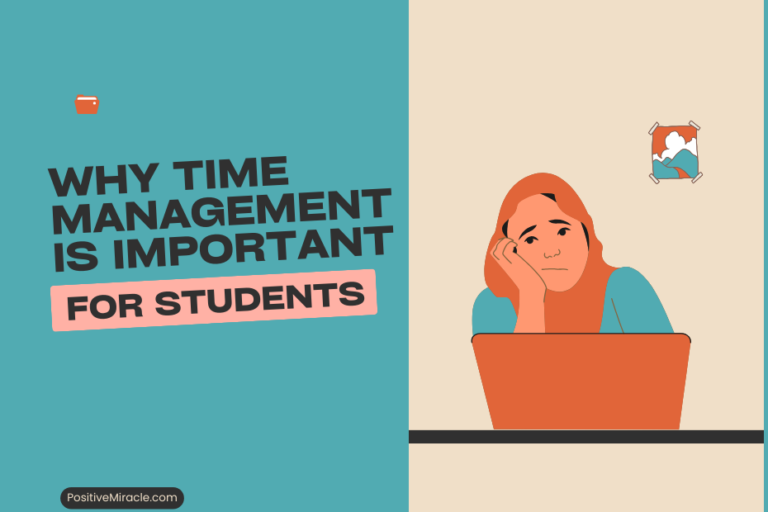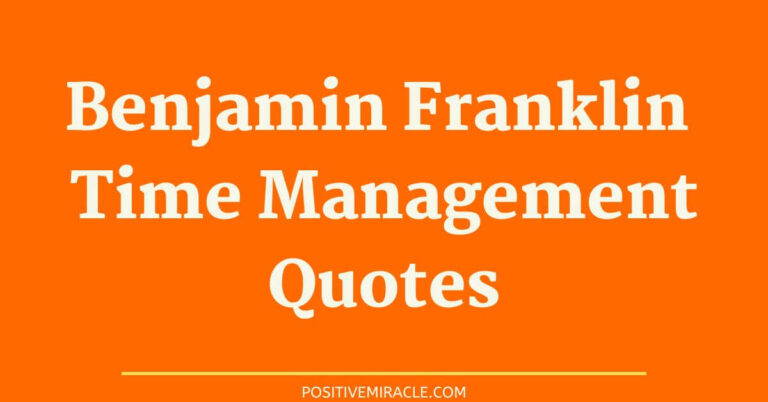Maximize Your Life in 4000 Weeks – Seize the Day!

“The trouble is, you think you have time.” – Buddha
Welcome to a thought-provoking journey towards redefining your approach to time management and embracing the power of every moment. In the hustle and bustle of life, it’s easy to get caught up in the notion that time is limitless. But here’s a wake-up call: the average human lifespan consists of just 4,000 weeks. Sounds daunting, doesn’t it? Every week counts, every day matters.
In his book, Four Thousand Weeks, Oliver Burkeman challenges the conventional wisdom of time management and beckons you to reimagine how you can maximize the limited time you have. It’s time to break free from the chains of busyness and embrace a life of purpose, fulfillment, and mindful choices.
Discover practical strategies to align your actions with your long-term goals, prioritize meaningful activities, and strike a healthy balance between rest and productivity. Explore the cult of busyness, the illusion of constant progress, and the importance of mindfulness and self-reflection. Burkeman dives deep into these topics, helping you navigate the complexities of modern life and make the most of your fleeting 4,000 weeks.
Key Takeaways:
- Prioritize meaningful activities that align with your long-term goals.
- Embrace imperfection and let go of the obsession with constant productivity.
- Find balance between rest and productivity to prevent burnout and nurture well-being.
- Practice mindfulness and self-reflection to make conscious choices and live a purposeful life.
- Escape the never-ending productivity treadmill by consciously selecting what truly matters to you.
The Value of Time as a Limited Resource
Four Thousand Weeks emphasizes the limited nature of time as a valuable resource. In the grand scheme of things, our existence may seem long, but it is startlingly short. It’s time to question your assumptions about time and reassess how you use it.
Time management is key to making the most of your limited time. By recognizing the value of time and being intentional in how you prioritize and spend it, you can lead a more fulfilling life and make every moment count.
The Importance of Prioritization
Prioritization is essential in effective time management. It enables you to focus your attention and energy on activities that truly matter to you. By identifying your goals, values, and aspirations, you can determine what deserves your time and attention.
Take a moment to reflect on what truly brings meaning to your life. Is it spending quality time with loved ones, pursuing your passions, or making a positive impact in your community? Prioritizing these meaningful activities allows you to align your time with what matters most to you.
The Meaning and Value of Time
Understanding the meaning and value of time is crucial for making intentional choices. Time is a finite resource, and each passing moment is an opportunity that can never be regained. By recognizing the preciousness of time, you can cultivate a sense of urgency and make proactive decisions that align with your values and goals.
Consider the implications of how you spend your time. Are you investing it in activities that bring fulfillment and joy, or are you caught up in trivial pursuits and distractions? By acknowledging the value of time, you can direct your energy towards what truly matters, leading to a more purposeful and satisfying existence.
Embracing the Power of Now
Mindfulness is a powerful practice that can help you fully appreciate and savor each moment. By being present in the now, you can let go of past regrets and anxieties about the future, allowing yourself to engage fully in the present.
Practice focusing your attention on the current task at hand, whether it’s a work assignment, a conversation with a friend, or simply enjoying a beautiful sunset. By immersing yourself in the present moment, you can cultivate a deep sense of gratitude and find meaning in even the simplest experiences.

Remember, time is a finite resource and it’s up to you to make the most of it. Embrace the value of time, prioritize what truly matters, and live each day with intention and purpose. Seize the opportunity to live a fulfilling life by making every moment count.
Rethinking Efficiency and Productivity
In Four Thousand Weeks, Oliver Burkeman challenges the prevailing obsession with efficiency and productivity. He presents a compelling argument that the incessant pursuit of constant productivity can have detrimental effects on our well-being and sense of fulfillment. The pressure to optimize every minute and accomplish more can lead to burnout, heightened anxiety, and a shallow sense of achievement.
Burkeman suggests an alternative approach – focusing on meaningful work that aligns with our values and long-term goals. Rather than constantly seeking to maximize output and completion of endless tasks, he encourages us to embrace imperfection and take imperfect action. By prioritizing work that brings purpose and fulfillment, we can create a more balanced and meaningful life.
Moving away from the traditional narrative of relentless productivity allows us to cultivate a healthier relationship with work. It enables us to pursue projects and tasks that resonate with us personally, fostering a sense of engagement and enthusiasm. By reevaluating our definition of productivity and shifting our focus to meaningful work, we can pursue a more fulfilling and authentic life.
Embracing imperfection and taking imperfect action is key to personal growth and development. It allows us to learn from our mistakes, experiment with new approaches, and discover our true passions. By releasing the pressure to achieve perfection and embracing the learning process, we open ourselves up to new opportunities and possibilities.
Remember, efficiency and productivity are essential, but they should not be pursued at the expense of our well-being and satisfaction. Instead of mindlessly chasing productivity for productivity’s sake, let’s strive for meaningful work that brings joy, purpose, and a sense of accomplishment.
The Illusion of Constant Progress
One of the key insights from Four Thousand Weeks is the revelation that the pursuit of constant progress can be an illusion. Society often glorifies the hustle mentality and the idea that progress should always be linear. However, Burkeman challenges this notion and encourages us to question our assumptions about progress.
He suggests that progress is not always measured by external achievements or constantly reaching new milestones. Instead, true progress can be found in personal growth, learning experiences, and the development of meaningful relationships. By shifting our perspective, we can cultivate a more holistic and fulfilling approach to our work and personal lives.
This reevaluation of progress also enables us to find contentment and satisfaction in the present moment. It helps us appreciate the journey rather than solely focusing on the destination. By embracing the process and acknowledging that true progress is multifaceted, we can lead more meaningful and fulfilling lives.

Cultivating Meaningful Work
Meaningful work is at the core of a fulfilling life. Four Thousand Weeks encourages us to reflect on the alignment between our work and our values. Burkeman highlights the importance of pursuing work that resonates with our passions, interests, and long-term goals.
When we engage in meaningful work, we find a sense of purpose and fulfillment. We are more likely to experience flow states, where time seems to fly by, and we are fully immersed in our tasks. By prioritizing work that aligns with our values, we bring greater meaning to our lives and contribute to the betterment of ourselves and the world around us.
| Traditional Approach | Rethinking Efficiency and Productivity |
|---|---|
| Focuses on quantity over quality | Emphasizes quality over quantity |
| Maximizes output at all costs | Pursues meaningful work that aligns with values and goals |
| Leads to burnout and decreased satisfaction | Promotes fulfillment and personal growth |
| Values busyness and constant activity | Embraces balance and prioritizes rest |
The Balancing Act of Rest and Productivity
Striking a balance between rest and productivity is crucial in maximizing your limited time. In a society that often glorifies constant busyness, it’s essential to recognize the importance of rest and downtime to prevent burnout and maintain overall well-being.
Oliver Burkeman emphasizes the need to prioritize self-care, relaxation, and leisure activities in his book Four Thousand Weeks. These activities are not luxuries but essential components of sustainable success and a healthy work-life balance. By taking time to recharge and rejuvenate, you can enhance your productivity and prevent the negative consequences of chronic stress.
Make it a priority to create space for rest. Consider incorporating activities that bring you joy and help you unwind into your daily routine. Whether it’s practicing mindfulness, going for a walk in nature, enjoying a hobby, or spending quality time with loved ones, find what works best for you.
Remember that downtime is not wasted time. It’s during these moments of rest that you allow your mind and body to recharge, leading to increased creativity, focus, and overall well-being. By valuing rest as an essential part of your life, you can create a healthier and more fulfilling approach to productivity.

Take a moment to reflect on your current work-life balance. Are you allocating enough time for rest and relaxation? Are there activities that you can incorporate into your daily routine to create more balance?
In the next section, we’ll explore the power of mindfulness and self-reflection in maximizing your limited time and living a purposeful life.
The Power of Mindfulness and Self-Reflection
In the pursuit of a purposeful life, embracing mindfulness and self-reflection can be transformative. Oliver Burkeman’s Four Thousand Weeks showcases the significance of these practices, urging readers to fully experience and appreciate the present moment. By being mindful, you can break free from the shackles of constant future-oriented thinking, and instead, cultivate a deep connection with the here and now.
Mindfulness is the art of being fully present, paying attention to each moment with non-judgmental awareness. Through mindfulness, you can savor the beauty of simple experiences, find gratitude in the mundane, and deepen your understanding of yourself and the world around you. It allows you to let go of worries about the past or the future, immersing yourself in the richness of the present moment.
Self-reflection complements mindfulness by inviting you to explore your thoughts, emotions, and actions consciously. By taking time for self-reflection, you gain clarity about your values, aspirations, and priorities. You become more attuned to your strengths and weaknesses, enabling you to make purposeful choices that align with your authentic self.
Combining mindfulness and self-reflection helps you break free from autopilot living and live a purposeful life. By regularly checking in with yourself, you can calibrate your actions and decisions to reflect your innermost desires and long-term goals. It allows you to make conscious choices instead of being unconsciously driven by external pressures or societal expectations.
Begin your journey towards a purposeful life by practicing mindfulness and self-reflection. Embrace the power of the present moment and use it as a compass for navigating your life’s path. Remember, the present moment is all you have, and the more fully you engage with it, the more meaningful and fulfilling your life will be.

| Benefits of Mindfulness and Self-Reflection | Ways to Practice Mindfulness and Self-Reflection |
|---|---|
|
|
Escaping the Productivity Treadmill
Four Thousand Weeks by Oliver Burkeman examines the futility of constantly chasing productivity and efficiency. Burkeman argues that despite the seemingly infinite amount of work available in the world, striving to complete endless tasks will not bring us a sense of fulfillment or accomplishment. Instead of getting trapped in the productivity treadmill, it’s time to make meaningful choices that align with our values and create a more balanced and fulfilling existence.
Are you tired of constantly feeling like you’re running on a hamster wheel, always busy but never truly satisfied? It’s time to break free from the never-ending cycle and take control of your time.
Choose what truly matters to you: Instead of trying to do it all, focus on what brings you joy, fulfillment, and contributes to your long-term goals. Prioritize tasks and activities that align with your values and give your life purpose. Remember, true productivity is about making progress on what matters most to you, not simply checking off endless to-do lists.
Integrate work and life: Achieving work-life integration is essential for escaping the productivity treadmill. It’s not about achieving a perfect balance between work and personal life, but rather finding a harmonious integration of both. Set boundaries, delegate tasks, and create space for activities that nourish your well-being and relationships. By integrating work and life, you’ll be able to lead a more fulfilling and holistic existence.
The Perils of the Productivity Treadmill
Constantly striving for productivity and efficiency can lead to various negative consequences:
| Perils of the Productivity Treadmill | Effects on Well-being |
|---|---|
| Burnout | Physical and mental exhaustion, decreased productivity, and diminished enthusiasm. |
| Lack of Meaning | Feeling unfulfilled and disconnected from your activities, leading to a sense of emptiness. |
| Stress and Anxiety | Constant pressure to meet unrealistic goals and deadlines, resulting in increased stress and anxiety levels. |
| Imbalance | Neglecting personal well-being, relationships, and leisure activities, leading to a skewed work-life balance. |
Source: Adapted from Four Thousand Weeks by Oliver Burkeman
Escaping the productivity treadmill requires a mindset shift and a willingness to prioritize what truly matters in life. Remember, your time is limited, but the choices you make can have a profound impact on your overall well-being and happiness. It’s time to break free from the endless pursuit of productivity and create a life filled with meaning and purpose.
Embracing Finitude and Making Peace with Choices
Four Thousand Weeks reminds us of the undeniable truth: time is finite. We are presented with a seemingly infinite array of possibilities, passions, and pursuits. However, in the grand scheme of things, it is simply impossible to do them all. Rather than succumbing to the pressure of cramming as much as possible into our limited days, we must learn to accept our limitations and find fulfillment in the choices we make.
Oliver Burkeman urges us to let go of the idea that we can have it all, and instead focus on making meaningful choices that align with our values and aspirations. By accepting the boundaries of time, we can free ourselves from the burden of feeling like we must constantly strive for more.
Embracing the finitude of time allows us to be present in the moment and appreciate the richness of our experiences. Whether it’s dedicating time to our relationships, pursuing a career that aligns with our passions, or engaging in activities that bring us joy, we can find fulfillment by consciously choosing what matters most to us.
Here is a table summarizing the key ideas presented in this section:
| Key Ideas | Description |
|---|---|
| Finitude of Time | Time is limited, and it is essential to prioritize and make peace with our choices. |
| Acceptance | Instead of striving for an unrealistic ideal, accept that it is impossible to do everything, and focus on what truly matters to you. |
| Fulfillment in Choices | By aligning our choices with our values and aspirations, we can find true fulfillment. |
Embracing the finite nature of time empowers us to live with intention, appreciating the depth and significance of every choice we make. By focusing on the present moment, savouring our experiences, and prioritizing what truly matters, we can lead more meaningful and contented lives.
Conclusion
To truly live fully, it is essential to recognize the significance of each passing moment. Four Thousand Weeks by Oliver Burkeman provides a thought-provoking exploration of time management and the finite nature of our existence. By prioritizing meaningful activities, finding balance between rest and productivity, practicing mindfulness and self-reflection, and making conscious choices aligned with our values and long-term goals, we can make the most of our 4,000 weeks and embrace the fleeting time we have.
One key takeaway from the book is that productivity and efficiency should not be our sole focus. Burkeman challenges the notion that constantly striving for tasks and accomplishments leads to true fulfillment. Instead, he encourages us to embrace imperfect action and focus on meaningful work that resonates with our passions and purpose. By finding a balance between rest and productivity, we can avoid burnout and sustain our well-being.
Another vital lesson from Four Thousand Weeks is the power of mindfulness and self-reflection. Burkeman emphasizes the importance of being present in the moment and regularly reflecting on our choices and priorities. By cultivating mindfulness in our daily lives, we can make conscious decisions that align with our values and lead to a more purposeful and fulfilling existence.
As we accept the finitude of our time, we realize that we cannot do everything. Burkeman encourages us to let go of the pressure to do it all and instead find contentment in the choices we make. By embracing the limitations of our human experience, we can focus on what truly matters and fully live the time we have.
So, seize the day, prioritize what brings you joy and meaning, and make every moment count. Embrace the lessons from Four Thousand Weeks and live fully in the face of your fleeting time.






